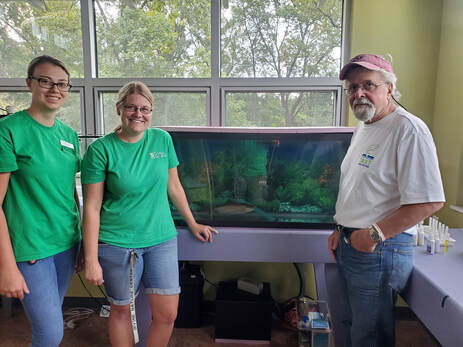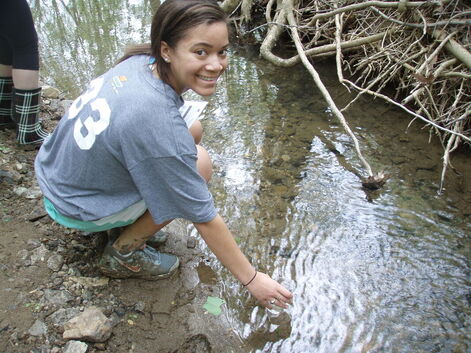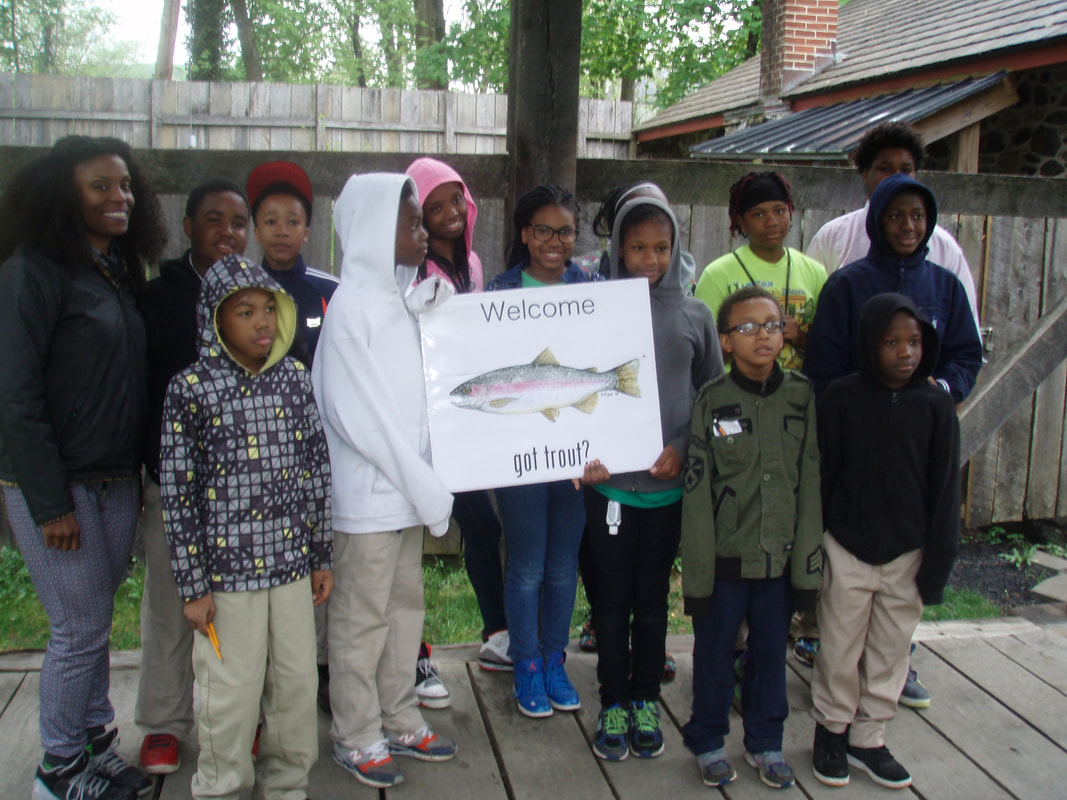MDTU currently supports a Trout in the Classroom (TIC) program for grades 3 through 12. All equipment, supplies & fish food are paid for by Maryland Department of Natural Resources (DNR) grants and private funding so there is no direct cost to the schools to participate. Trout Unlimited volunteers do much of the legwork to make the program possible. Teachers and volunteers attend an annual TIC orientation seminar for a day of free comprehensive training. A TIC Teachers Guide is provided that provides great detail on all aspects of the program. The program starts in early December with egg delivery. Rainbow trout eggs from a DNR hatchery are delivered to participating schools by volunteers. Each school receives about 150 to 175 eggs. We are always looking for more volunteers to deliver eggs; it takes about two hours, so is an easy and fun way to help out.

Once in the classrooms, the eggs are placed into nursery baskets in a 55-gallon chilled aquarium. The students care for the eggs, as they grow into alevins and fingerlings. The program is designed to support science curricula with hands-on learning. Students test the water chemistry for pH, nitrites, nitrates, and ammonia and monitor temperature. They also perform necessary regular maintenance to control water quality, vacuuming the bottom of the aquariums to remove waste and uneaten food, adding water to keep levels consistent, etc. Through these activities participants learn about the ammonia-nitrogen cycle and add bacteria to keep the systems healthy. Students record readings, water change schedules and bacteria additions on a data sheet. They are encouraged to solve problems that arise during the program on their own, teaching critical thinking skills.

In the spring, class trips are organized to a designated DNR release location, typically a healthy stream in the community nearby the school. The 2-3” fingerlings are transported in an aerated cooler. Streamside, students participate in various hands-on ecological activities, including fish habitat, stream health and water chemistry assessment, macro invertebrate collection and identification (to see what trout will be eating in their new environment) and then the fingerlings are released. Often TU volunteers will also share information about fly fishing at these events too, offering basic casting instruction, demonstrating how fly patterns imitate trout food sources, and discussing responsible angling practices.
2019-2020 Participants
|
This past TIC release season (spring of 2019) fifteen schools from Baltimore City, Baltimore County and Harford County released 1,307 fingerlings, supported by MDTU volunteers.
Participants in the 2019-2020 TIC season included: Baltimore City (7): Academy for College and Career Exploration, Baltimore Lab School, Boys Latin School of Maryland, Connexions Academy, Hampden Christian School, Parks & People Foundation, Roland Park Elementary/Middle School; Baltimore County (14): Elmwood Elementary School, Garrison Forest School, Irvine Nature Center, Jemicy School, Lutherville Laboratory School, Maryland International School, Maryvale Preparatory School, Odyssey School, Overlea High School, Ridge Ruxton School, Western School of Technology, Woodlawn Middle School; Harford County (2): Bel Air High School, North Harford High School |
